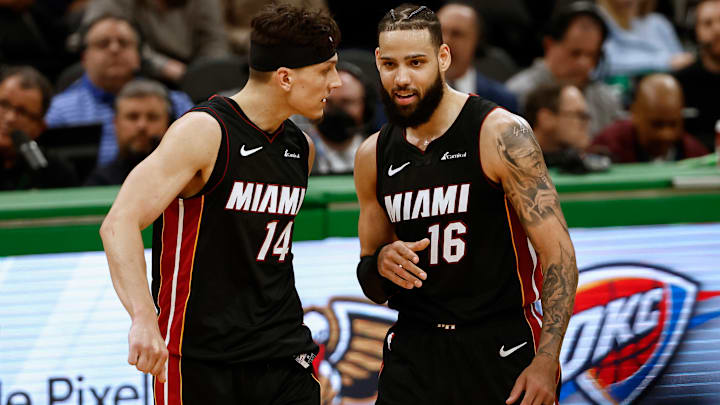The moment the Miami Heat bring on an opportunity to get doubted, they prove that they can never be counted out. Wednesday night’s 111-101 victory over the Boston Celtics in Game 2 of this first-round series was an inspiring performance. After losing by 20 points in game 1 and still without the services of the top two scorers on the Heat in Jimmy Butler and Terry Rozier, this team stood on business.
Miami went into the night being 14.5-point underdogs and made a statement on national television. Bam Adebayo and Tyler Herro had their imprints all over this game. Every time the Celtics tried to cut into the Heat's fourth-quarter lead, Adebayo was there to hit a big-time bucket and shut down their momentum. Herro put together the greatest playmaking game of his career, finishing with a game-high 14 assists.
Heat Culture was on full display, led by the brilliant coach Erik Spoelstra, who made the necessary adjustments to bounce back. He has instilled confidence in this undermanned group, giving them all the full belief that they are more than capable of making this a competitive series. Spoelstra improved to 10-3 in his career following a game 1 loss in the postseason.
But what were the three main adjustments that Miami must carry over from Game 2 into Game 3 back in South Florida on Saturday?
3. 3-point efficiency and volume
The highlight of the night was the team beating Boston at its own game and torching them from 3-point range. The Heat made a playoff franchise-record 23 shots from deep, going 23 for 43 (53%).
The Celtics, however, were just 12 for 32 (38%) after shooting the lights out in Game 1 of the series. Boston attempted 17 more 3-pointers in Game 1 than in Game 2, and shot it more efficiently (45%).
With the way the Heat had control and connected in this important category at a historic pace, some would think that they shot a lot less in the previous outing. But they went 12 for 37 on Sunday from deep, only six fewer attempts than in Game 2. The main difference was the confidence. Miami was letting it fly with no hesitation and much less overpassing on the perimeter.
The Heat need to carry this adjustment into Game 3 if they want to take a 2-1 series lead. They have to continue closing out Boston’s shooters, limiting their volume and shooting the ball efficiently themselves.
